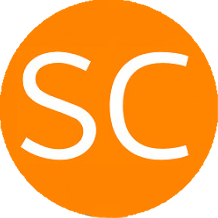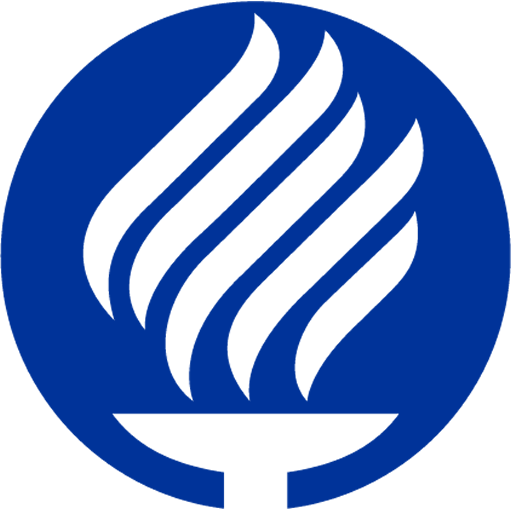Editorial Policies
- Focus and Scope
- Section Policies
- Peer Review Process
- Open Access Policy
- Archiving
- Code of Ethics
- Open Acces Policy
- Organization of the journal
- Rights of the Readers
- Indexes and Database Policy
FOCUS
En-claves del pensamiento is an open access scientific journal published since June 2007 with eISSN: 2594-1100. Our objective is to disseminate research in the Humanities: Philosophy, Art, History and Literature. Preferably, we are interested in attracting articles tackling topics relating to vulnerability as an ontological, ethical and political category which also reflects on history, literature and the arts. The language of the publication is in Spanish and English, we include the title and the abstract of the article in English with the goal of giving the Journal larger international visibility.
SCOPE
The Journal is specially directed to Ibero-American community of researchers and professors in the humanistic field, as well as graduate students in this same area.
FREQUENCY
Continuous two issues per year publication: January-June and July-December.
SECTION POLICIES
ARTICLES
Articles: research papers in the field of humanistic disciplines: philosophy, art, history and literature. We are preferably interested in attracting papers that address issues related to vulnerability as an ontological, ethical and political category that is also reflected in history, literature and the arts. This section is open for the submission of scientific contributions. The submissions will be evaluated through a double-blind peer review process by at least two reviewers, complying with the criteria of academic quality and impartiality.
Dossier: Research papers that contribute to the understanding of vulnerability from different humanistic disciplines. This section accepts submissions based on the calls for papers. If the editor of the dossier considers that the articles received do not correspond to the perspective and approach sought, they will be reassigned to the Articles section, notifying the author, where they will be evaluated anonymously by at least two reviewers. In case the articles are considered pertinent for the dossier, the papers will be evaluated through a single-blind peer review, by at least one pair of reviewers.
Book reviews: Papers commissioned and supervised by members of the Editorial Committee, which make an argued critique of recently published books in the Humanities. This section does not accept open submissions.
Interviews and Reflections: Papers commissioned and supervised by members of the Editorial Committee when it is considered that there is a relevant issue of interest to the scientific community in the humanities. This section does not accept open submissions.
PEER REVIEW PROCESS
Process of editorial review:
The evaluating and selecting process is made of the following steps:
- Sending the text. Authors must guarantee in writing that the same text has not been simultaneously sent to other publication and that, in any case, it is an original and previously unpublished text. Authors will be responsible for complying with this rule and other conditions set forth in the checklist.
- Acknowledgement of receipt. This will be sent by the Plataform OJS when the submission is finished. If the receipt is not received please inform to our technical support.
- Early validation. Before sending the text to the evaluators, the Editorial Committee carries out an early validation, in a twenty-day period, to corroborate if the text complies with the minimum prerequisites relating to originality, style, extension, scientific quality and content (and that the article falls within the journal’s academic field). Also, the text will be submitted to a plagiarism detection software.
Academic review process
- Double-blind peer review: Once the process of the early evaluation is completed, the Editorial Committee selects two evaluators external to the publishing institution and the author’s institution, accordingly to the specialty, qualification and independence. The evaluators will review the text without knowing the name of the author or authors (double blind). In the case that there is a disparity between the two evaluations the text would be sent to a third evaluator.
-Single-blind peer review: This procedure is performed only in the Dossier section, where the guest editor will review the article, as well as the identity and background of the author to verify that it is relevant to the coherence and thematic construction sought according to the call for papers. The guest editor will make an initial review of each of the articles. Subsequently, the guest editor will present the articles submitted to the dossier to the Editorial Committee for review and ratification by experts. In the event that the guest editor includes in the Dossier his/her own participation as author, this will be subject to a double-blind peer review to validate the quality of the contribution. In the event that the guest editor considers that an article is not pertinent to the dossier's theme, such contribution will be reassigned to the Articles section, where it will follow the double-blind peer review procedure.
Based on the recommendations of the evaluators the Editorial Committee:
- Publish unmodified
- Publish with minor corrections, there is no need of a second review on behalf of the evaluators.
- The publication is conditioned to significant changes made to the text.
- Publication is not recommended.
- Evaluation procedure. Evaluators will have evaluation form that must be used as guide to evaluate: Relevance of the topic, Quality of the argumentation, Bibliography, Originality, Brief critical judgment of the content. Additional comments are welcome to the options on the form.
-Evaluation guarantee. Even though the evaluation has the guarantee of being anonymous, when selecting the evaluators, the idea is to avoid conflicts of interest. The identity of the authors will remain anonymous, except in the case of the thematic dossier, which is judged single blind.
- Reply to the answer. The result of the evaluation will be communicated to the author or authors in a period no longer than six months. In case the evaluators accept the text but requested that significant changes were made for its publication, an amount of time would be given to the author (between fifteen days and three months, depending on the amount of the changes), so they can be incorporated in the text and the author can then submit a new version of the text which would be reviewed by the Editorial Committee to corroborate that the changes suggested to the text were made.
- Communication of the evaluation result. En-claves del pensamiento will communicate to the author the result of the evaluation and will send the two coinciding evaluation forms, guarantying the anonymity of the evaluators. The result of the evaluation is final.
- Exclusions. In every case, the criteria for rejecting a submission are: 1) if the text doesn’t fall within the field of interest of the journal; 2) if the text exceeds the extension according to the type of collaboration; 3) if it doesn’t use the appropriate referencing system; 4) if the texts is not submitted in the requested media; 5º) authors may not publish in two consecutive issues of the journal, and 6) if an author has already published twice in the journal, he/she will have to wait a period of 2 years after the publication of his/her last article to republish/submit an article.
- Responsibility. The Editorial Committee is not responsible for the opinions put forward in the published articles.
OPEN ACCESS POLICY
When submitting their contributions for publication authors accept the following conditions:
En-claves del pensamiento will always recognize that the moral rights belong to the author or authors; patrimonial rights of the first publication will be transferred to the journal’s editor for dissemination in any medium and format; in the case of the printed version, and in open access, in the case of the electronic version.
The journal is open access, so its contents can be read and downloaded by anyone.
Authors may distribute their articles independently and negotiate agreements and additional contracts for the non-exclusive distribution of their text published in En-claves del pensamiento in institutional repositories and other electronic media) as long as it explicitly states that the article was originally published in En-claves del pensamiento.
Post-print: If the work in question is registered in a repository, in personal academic networks, in a congress or in other systems, the authors must state that the article was published in En-Claves del pensamiento, year xxxx.... with title X, DOI: xx and establish the url of the journal for direct consultation on the journal's website.
The entire content of the electronic edition is distributed under the Creative Commons 4.0 Atribución-No Comercial (CC BY-NC 4.0 Internacional) license, which allows third parties to use the published material as long as the source, in this case the journal, is given credit.
En-claves del pensamiento does not accept any charge or commercial exchange from any organization or person for the publication of a scientific contribution.
ARCHIVING
This journal uses LOCKSS to create a distributed archiving system among collaborating libraries, allowing them to create permanent archives of the journal for preservation and restoration purposes.
ORGANIZATION OF THE JOURNAL
The journal En-claves del pensamiento is formed by a team of multidisciplinary scholars in the field of the Humanities. The journal’s internal structure is composed of a Editor in Chief, an Editorial Committe, a Scientific Committee, a Counsel for Evaluation and an Editorial Team. Next, we will detail how each of this offices work:
The Editor in Chief is the legal and official representative for the publication, besides being responsible for the quality and diversity of the content. The editor in chief coordinates the committees and the evaluators and oversees that the different phases of the editorial process are duly met. The Director promotes and disseminates the journal in the scientific community and works towards including the National and International Indexes.
The name of the Editor in Chief of the journal is made from the members of the Editorial Committee belonging to the issuing institution and having a minimum seniority of two years in order to ensure the continuity of the editorial processes while respecting the rights of the authors and the readers.
The Editor in Chief also is in charge of following up on the scientific evaluation process (review by anonymous peers) of the articles submitted, as well as communicating the reviewer’s decision to the authors. The Editor also controls the editorial process up to the publication of each volume; it helps with the distribution of the journal and its inclusion in indexes and databases of scientific quality.
The Editorial Committee is composed by the Director, the Editorial Coordinator and 14 academic specialists in our thematic fields, both National and International, most of them external to the Tecnológico de Monterrey. The designation of the members of the Editorial Committee is honorary, without pay and temporary. Among their functions those most prominent are: guarantying the journal’s good academic practices; promoting the thematic interests of the publication; suggesting reviewers for the texts submitted; supporting the editorial process and the dissemination of the journal. Every one of the members of this Committee has a voice and a vote in the strategic decision making of the journal.
The Scientific Committee is composed of approximately 30 prestigious specialists in the Humanities, all of them external to the Tecnológico de Monterrey. The members of this Committee are nominated by the Editorial Committee and can be replaced when the Editorial Committee chooses to do so. Their role is to guarantee the scientific nature of the publication and to promote the dissemination and collaboration with the journal in the National and International media.
The Evaluation Council is formed by specialists with academic parity to the authors and belong to the different disciplines embraced by the journal. Its members will anonymously evaluate the scientific quality of the submitted papers, providing elements for its acceptance or rejection. The reviews will be delivered to the Editorial Committee to be communicated to the authors. This Council’s list of members will be updated constantly, in accordance to the needs of the flux of papers submitted.
The Editorial Team is composed of the editor in chief, and the editorial assistants who are in charge of support tasks relating to the editorial process. Also participating are: a staff editor and proofreader who reviews the texts in detail, including references and citations; advisors for xml markup; technical support; advisors for the operation and publication of the Open Journal System digital platform; as well as guests for artwork and editorial design.
CODE OF ETHICS
En-claves del pensamiento sets its ethical code based on the recommendations from the Committee on Publication Ethics (COPE) (publicationethics.org). This document is addressed to editors, evaluators and authors.
Authors
Originality and multiple publication. Authors must guarantee in writing that they have not submitted the same text to another journal for publication, and that, in every case, the text is original and unpublished. Authors will be responsible of complying with this norm.
Plagiarism. Using material previously published by other authors without assuming honest scholar criteria will result in the rejection of the article.
Conflict of interest. By submitting an article to En-claves del pensamiento, authors declare that there is no conflict of interest that may have influenced in their research.
Mistakes. Authors can inform the editors of the existence of mistakes and submit the correction so the mistakes can be corrected as fast as possible.
Results of the evaluation. Both in cases of acceptance or of rejection, authors will be sent the results of the review from our Evaluation Council.
Evaluators
Honesty and punctuality. Evaluators commit to carry out a critical revision without bias and in a constructive manner of the articles assigned to them. The commit also to do it in the leas possible amount of time, respecting the time limits given to the authors.
Respect. Every evaluation will have an argument expressed by the evaluators, without any hostile or degrading commentary.
Conflict of interest. Evaluators most recuse themselves when they think that there is a conflict of interest in the article assigned to them. The Composition Council will be especially careful about this when selecting the reviewers.
Confidentiality. Evaluators must be committed to respect the confidenciality of the articles assigned to them, abstaining from using them for their own benefit or in detriment of others. To reinforce this measure, evaluators will review the work without knowing the name or names of the authors (double-blind).
Objectivity. Evaluators will submit a comprehensive critical report on the article, for this they will have a form which they can request from the editors. They must warn the editors if they detect either plagiarism, multiple publication or repetition.
Editors
Responsibility. During the process of preparing a number of the journal, editors will tend to the needs of authors, evaluators and readers, committing to the constant improvement of the journal’s quality.
Independence. Editors of En-claves del pensamiento firmly and mutually agree that their relationship with the editing entity is firmly based on the principle of editorial independence.
Article selection. The article submitted to this journal will be evaluated paying attention exclusively to its intellectual quality, in accordance to the principle of academic excellence and guarantying anonymity and impartiality while selecting them.
Conflict of interest. Editors must recuse themselves when they feel that there might be a conflict of interest. Likewise, the Composition Council will pay special attention to this aspect when selecting the evaluators.
Content. The Composition Council will clearly indicate which sections of the journal are to be submitted to an evaluation process and which ones will not. The evaluation of the articles is carried out through the peer-review process guarantying the anonymity of both the authors and the evaluators. In case that there is a disparity in the results from the two evaluations, the article will be sent to a third evaluator. The final decision will take into account the two coinciding evaluations.
Respecting due dates. Editors will respect the due dates of the evaluation process. After receiving the article, they will acknowledge reception, and that day a period of not more than three months will begin to carry out the evaluation process, and communicate acceptance or rejection of the article. If the evaluators accept the article, but suggest significant changes to it before it can be published, the author will be given a period of time (between fifteen to two months, depending on the changes suggested) so he or she can incorporate the changes and send a new version which will be evaluated one more time.
Editing the article. When the article is accepted for its publication, our Composition Council will proofread the text. The author must give their express acceptance for the publication of the article with the changes made by the proofreader.
INCLUSIVE LANGUAGE
The scientific contribution submitted, as well as the communication among authors and editors, editors and reviewers and anyone involved in the publishing process will be free of offensive words, and/or discriminatory language relating to sex, gender, race, religion, culture or tradition.
RIGHTS OF THE READERS
Readers of En-claves del pensamiento can access directly the content freely and at no cost as soon as a new number is uploaded to the site. The reader/user can quote, share (electronically and physically), print and distribute the material as long as it is clear and explicit that the article was first published in En-claves del pensamiento. The work must be properly referenced and must not be used with commercial ends according to what is established by the Creative Commons 4.0 Atribución-No Comercial (CC BY-NC 4.0 Internacional) license.
SPONSORSHIP
En-claves del Pensamiento is edited and financed by the Tecnológico de Monterrey.
The editorial process of En-claves del Pensamiento, as well as access to the complete content in its electronic version, is free of charge for authors and readers of the journal.
DETECTION OF PLAGIARISM
We used Ithenthicate, a specialized software for plagiarism detection. The texts received will be reviewed before being sent for editorial and academic review. They will be rejected if the percentage of similarity with another published text or one available on the Internet is higher than 35% or when it is considered that there is no originality in the article based on the review of the sources.
If a possible plagiarism is detected or reported in a published text, the journal subscribes to and will act according to the procedure suggested by COPE and summarized in the following diagram
INDEXES AND DATABASE POLICY
En-claves del pensamiento expresses its interest in be included in international indexes and databases specialized in scientific publications. Currently our journal is part of Scielo Citation Index (WoS), Scielo, Dialnet, Latindex, Redalyc, DOAJ, CLASE, GALE, Ulrich´s Periodicals Directory, The philosopher´s Index, ERIH PLUS, EBSCO, DIALNET and IRESIE.
En-claves del pensamiento’s Director, Editor, Editorial Committe and Scientific Committee are committed to promote the inclusion of the journal in other academic indexes and databases to contribute to increase its international visibility. They will also seek to promote the use of alternative metrics and tools to have a greater reach within the community of readers and researchers.








